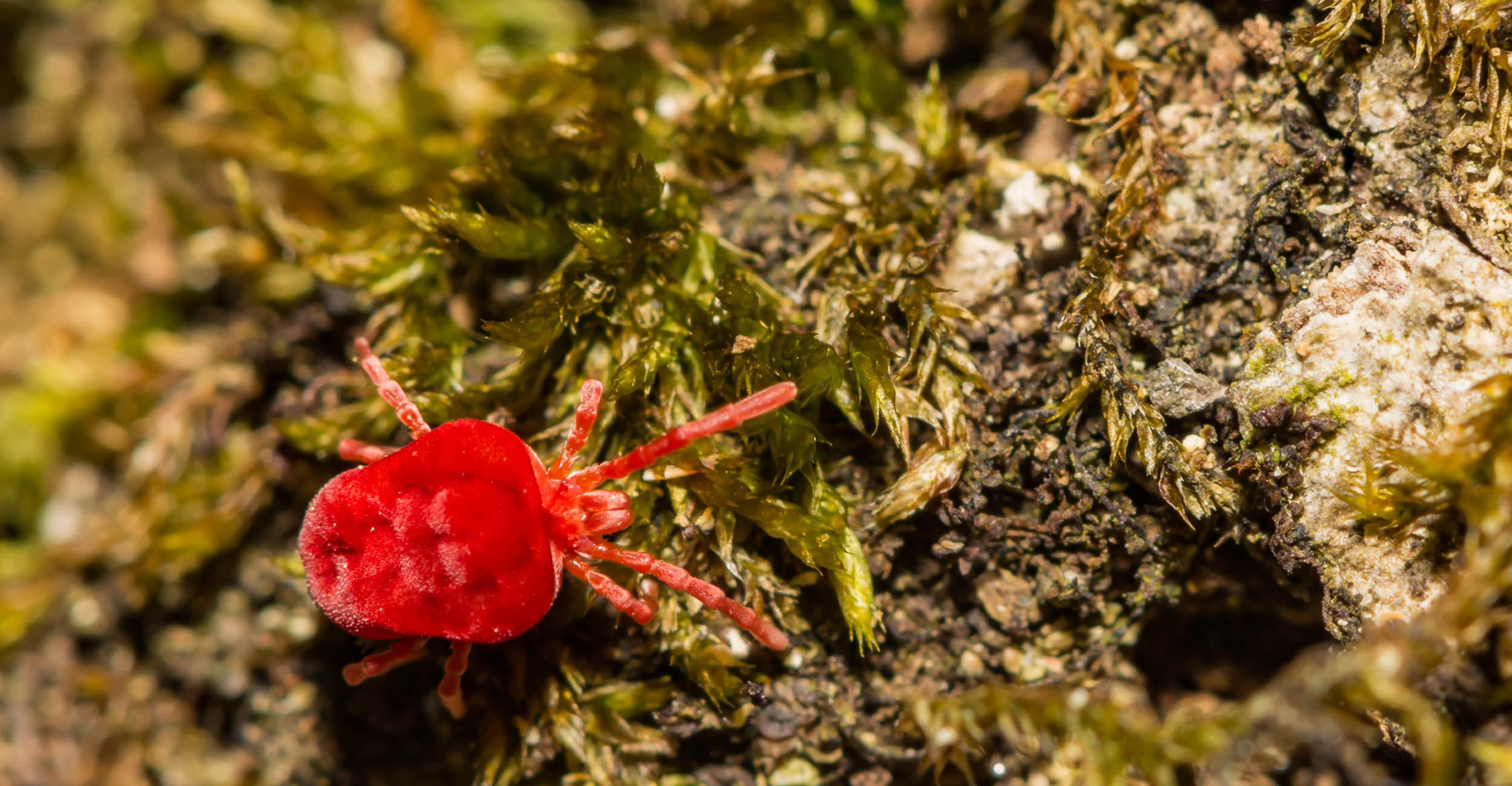
The truth about chiggers
Wednesday, July 19, 2023
Media Contact: Gail Ellis | Editorial Communications Coordinator | 405-744-9152 | gail.ellis@okstate.edu
Chiggers are a nuisance during the summer months. The little red mites feed on leaves and humans, irritating the skin with itchy, inflamed bites.
Dr. Justin Talley, head of the Oklahoma State University Department of Entomology and Plant Pathology, said any area of high vegetation can support chigger populations because of the humidity that is maintained within vegetative cover. Chiggers can be found in meadows but are usually most prominent in grassy or scrubby vegetation, shaded areas, leaf litter, rotten logs and stumps.
“If you walk through low vegetation, check your ankles, but chiggers could also feed around your waistline,” Talley said. “Chigger feeding sites are anywhere where there may be some kind of tight clothing — waistlines, ankles and sock lines.”
Common misconceptions about chiggers are that they burrow into the skin and can be suffocated to prevent biting.
“Chiggers are non-burrowing mites. They feed on you, leave and then the bite is what causes irritation,” he said. “Avoid substances that you think can suffocate the chiggers because they are simply not there by the time the bite begins to itch.”
Another myth about the mite is that it can transmit disease. Talley said chiggers are at low risk for transmitting pathogens. Severe irritation is caused by compounds in adult chigger saliva that produce a reaction.
No lotions or soaps have been proven scientifically to attract chiggers, but Talley said those that are effective in deterring them include DEET, picaridin or IR3535 when applied to the skin.
“Use products that have at least 20% or higher of these compounds to effectively repel chiggers for extended periods of time,” he said.
To relieve chigger bites, use common antihistamines or creams that counteract the skin’s inflammatory response.
Talley debunks chigger myths on “SUNUP,” Oklahoma State University’s production agriculture television show.
